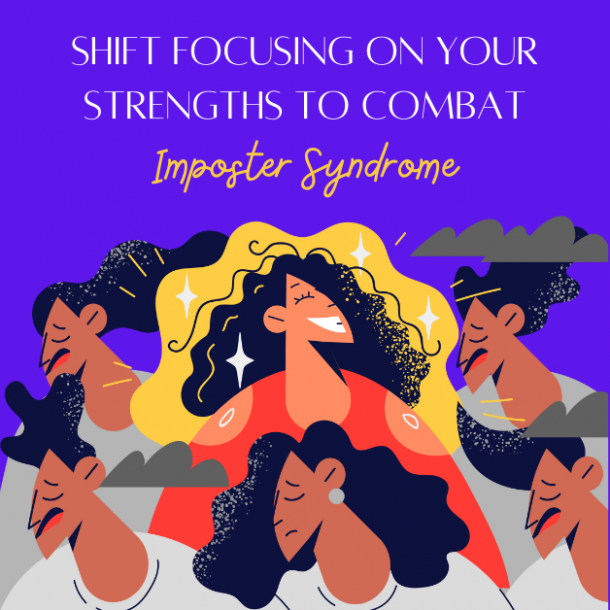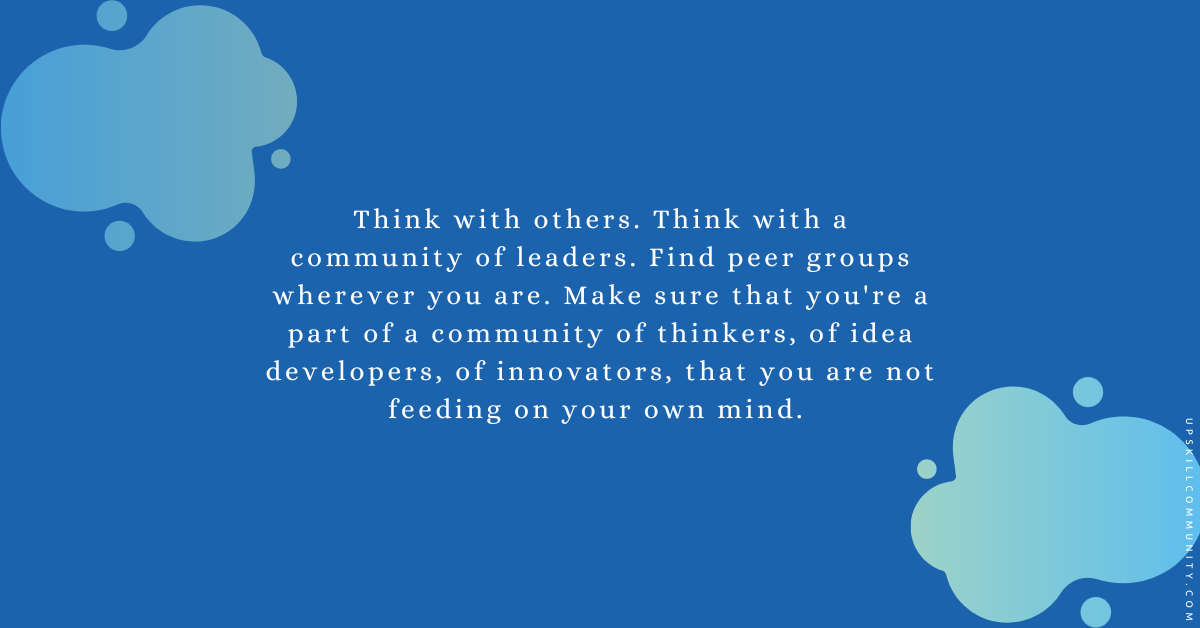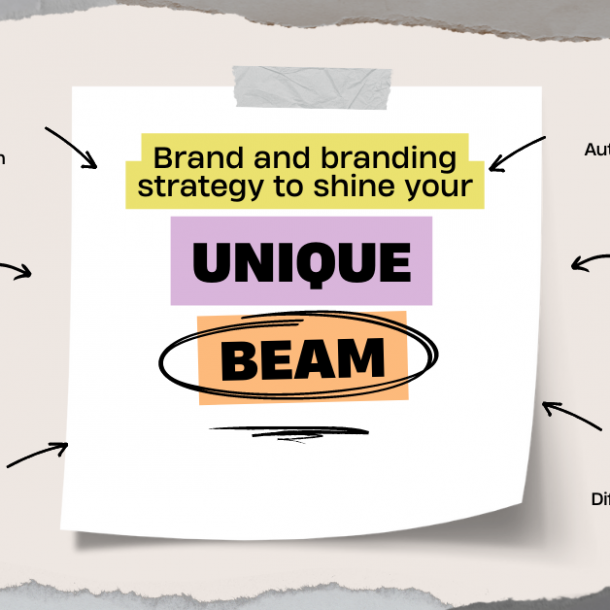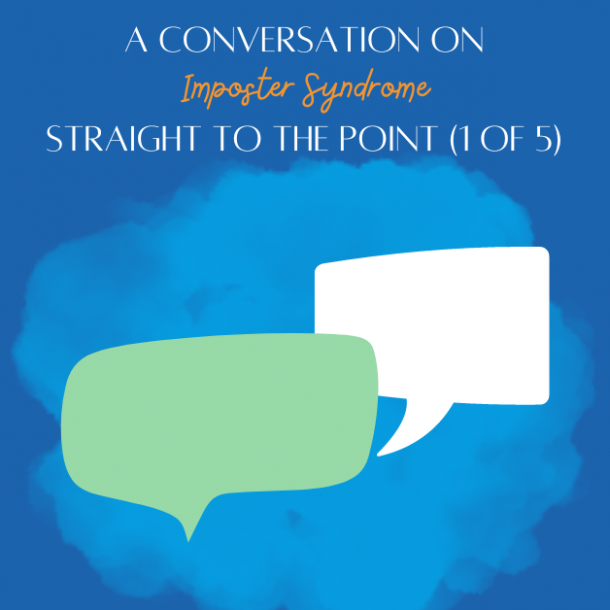
UpSkill: How to stop imposter syndrome from taking away from you and your community
We are all a work in progress.
Yet, sometimes our progress is hampered by an imposture. An unwelcoming posture. This imposture that I’m talking about is the imposture syndrome. And in the previous episodes, I’ve defined it and revealed some of its signs. In this episode, I’m going to discuss the ways in which the imposture actually gets in the way of our progress without us even realizing it. And then I’m going to provide you the most essential strategy for addressing the imposter syndrome. The imposture that you have won’t like it, but it will have to step out of your way and allow you to progress at the rate at which you’re capable of progressing.
The number one way that the imposter syndrome may show up without you realizing it, particularly in your professional life, is an unwillingness to climb any higher or to take on any more challenges. Because you are afraid that the new role will lead to more scrutiny that will expose you as an imposter. That may show up in you rejecting promotions, rejecting opportunities to lead projects, rejecting opportunities to mentor, just rejecting to do anything outside of what you’re doing.
You get to a point and you go, “You know what? This is good for me. The other areas are too challenging, too much. I’m good right here. I’m not taking on anything else.”
You’ve hit the safe spot that the imposture has told you it’s likely that you are not as competent as other people to be able to move to the other area. Pause and reflect. And try to think about what the imposture is taking away from. And not just you. Taken away from others who could benefit from what you bring to the table. When you take away from yourself, the imposter syndrome is there to deprive you. So it’s important for you to remember that. And when it succeeds, you are taking away from yourself, you’re taking away from your own ability to grow yourself and to be more and to do more and to showcase more of yourself to others.
You’re also taking away from others by not sharing those great ideas and skills, which we can use to help ourselves to level up and to level up or organizations, our communities, and our world. It is so important for you to own your competency. That is your gift to us, your gift to your world. And no one else can provide that unique combination of competency that you bring. And so you need to own that as uniquely yours.
And we value it and it helps us to level up. One of my favourite strategies for helping with this is to have an accomplishment log. I discussed this in the previous episode as well. This does not need to be a special log book. It can be the notes on your phone, it can be the reminders on your phone. It can be any device. Write down dates and accomplishments.
September 7: I completed episode 43.
Simple.
September 8: I completed research on imposture syndrome.
Post on LinkedIn to share with others. If you acknowledge the very little things, you’ll realize that there is something of value that you are adding to the world. It could be that you arrived on time 30 days in a row, because you were working on your time management skills. Maybe you went walking three days a week, like you promised to yourself.
An accomplishment is really owning up and honouring yourself and your own goals. It’s being true to your goals and committing to them and delivering on them, whatever those are. It can be at work or in your personal life. Remember you are unique and can bring value and knowledge to others. Everyone may be able to get their hands on a recipe, everyone may have all the raw ingredients, but you bring those ingredients together to make this one thing that only you can share.
If you understand that uniqueness, then you understand that even if someone copies what you’ve done, or even if 10 other people have done it, there is someone who can benefit from what you bring. And that’s the person you want to be thinking about and focusing on as you shift your mindset from “Nah. That’s, that’s not me. That’s ridiculous. Why are they going over the top? Everybody is exaggerating. I didn’t do that much. It’s not such a big deal.”
Shift away from that to say, “Thank you. I’m grateful to be recognized. I’m grateful that you acknowledge it. I’m glad you liked it. Tell me what you liked about it.” Just engage in a dialogue which will bond you and connect you with people.
One of my favourite quotes (and I’m not sure who to attribute it to) sounds like this, “a mind that feeds on its own soon becomes a starved.” I think one of the keys to shifting away from the deficiency model, where the imposter comes in and takes up more and more space in our lives, is to have ongoing dialogue with other people who see you. There are people who experience you in positive ways, who you contribute to, who you help to level up, who you help to share perspectives with. I think being part of a group, a community, where ideas are shared in an ongoing manner has to be a strategy for us to begin to feel a sense of belonging in a space, and to be able to share more openly and begin to believe in who we are, what we offer and where we can go and who we can be.
I believe that community, however you define it, whether it’s in person or online community is essential to eradicating imposter syndrome for all of us. And imposter syndrome is not one thing for all of us. It shows up for different reasons for different people, but I really believe community is one way that we can harness our collective power to help all of us share ideas and see each other in positive ways. It also helps those who rely on us and need us to share our thoughts, our ideas, perspectives and to challenge their ideas so that we can all level up, we can all upscale and we can all go to this better place together. And that is the goal of what we do at UpSkill Community, wanting to make sure there’s a community where all of us as leaders can have those conversations can see ourselves through the positive lenses of others and can grow into that more confident version of ourselves.

Remember my favourite quote I shared earlier: “A mind that feeds on its own soon becomes a starved.” When you sit and do all of your thinking on your own, the imposture becomes your thinking partner: a stronger, more vigilant partner with greater experience than you that takes you down a negative pathway. Think certainly by yourself, but do not be that mind that feeds only on yourself. Think with others. Think with a community of leaders. Find peer groups wherever you are. Make sure that you’re a part of a community of thinkers, of idea developers, of innovators, that you are not feeding on your own mind. Engage with others whose lenses may help you see yourself more clearly, who will hold up a mirror for you. Maybe you see a version of yourself that you’ve never seen before. I encourage you to get out there. Start conversations with others. Start sharing and start mentoring, start contributing and start to see the imposter does not like that environment. It will go away and will open up room for you to become more of who you really are meant to be.


